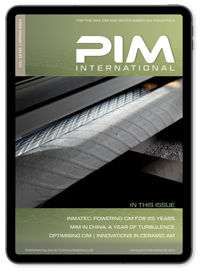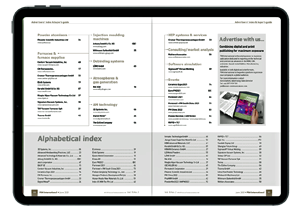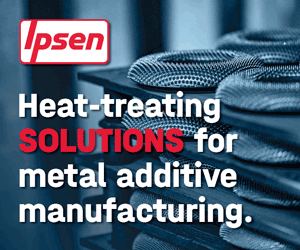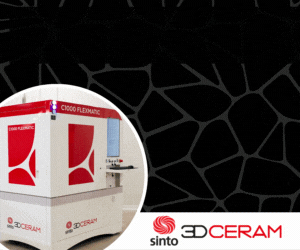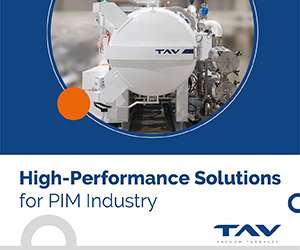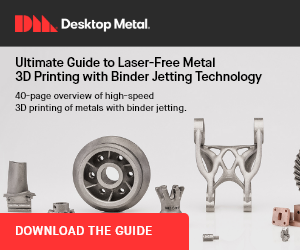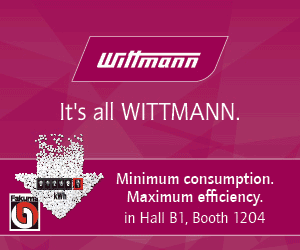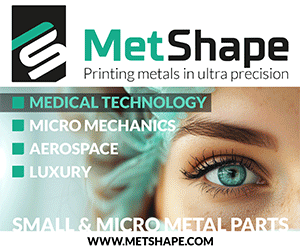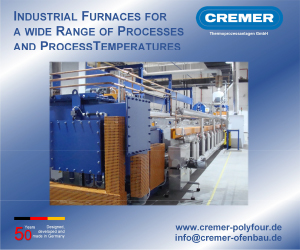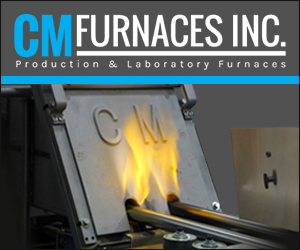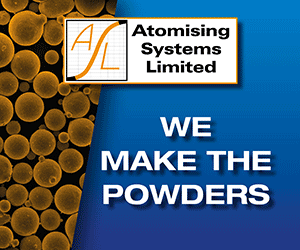BASF Ultrafuse 316L Stainless Steel now supported on MakerBot METHOD AM machines
February 17, 2021
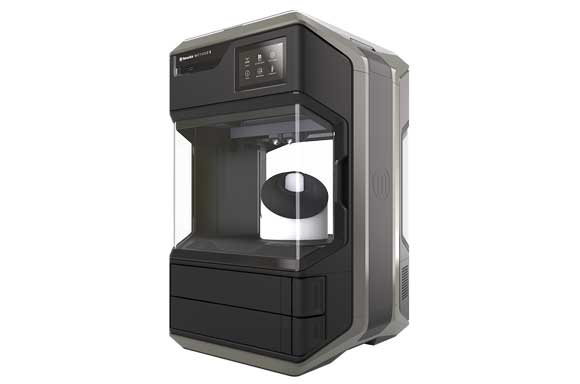
MakerBot, a Stratasys company, headquartered in Brooklyn, New York, USA, has announced that the BASF Ultrafuse® 316L Stainless Steel material by Forward AM, the Additive Manufacturing brand of BASF 3D Printing Solutions GmbH, Heidelberg, Germany, has been qualified for the MakerBot LABS™ Experimental Extruder for the MakerBot METHOD® AM machines.
With an open materials platform and a growing portfolio of advanced engineering-grade materials, MakerBot states that METHOD is the only industrial desktop AM machine in its price range with a heated chamber that can additively manufacture metal, polymer and composite materials.
Ultrafuse 316L Stainless Steel combines high strength, rigidity and durability suited for a range of applications including functional prototypes and manufacturing tools. Available using the MakerBot LABS GEN 2 Experimental Extruder, this metal-polymer composite material provides METHOD users with an accessible and cost-effective option to experiment with metal Additive Manufacturing applications without making the significant investment typically needed for a dedicated metal AM solution.
The company explains that additively manufacturing stainless steel parts can also shorten the time it takes to produce parts, further reducing operational costs compared to traditional methods. METHOD’s heated chamber and ability to control the speed at which a part cools down during the building process can also reportedly help reduce the risk of delamination.
Once the part is built with Ultrafuse 316L, it can be sent out to post-processing or specialised manufacturing facilities for debinding and sintering, which turns the part into solid stainless steel. This process allows users to create stainless steel parts without investing in expensive debinding and sintering equipment.
MakerBot states that final parts can achieve up to 96% of the density of pure 316L metal material. Users can produce lightweight, hollow metal parts with high tensile strength compared to polymers that would be difficult to produce in other ways.
“Ultrafuse Metal Filaments removed the barriers between metal 3D printing and users to make the technology more accessible to a larger audience. We are very excited to have our Ultrafuse 316L part of the MakerBot LABS program. We aim to add our recently launched Ultrafuse 17-4 PH filament, with the Ultrafuse 316L to make our entire portfolio accessible to MakerBot users,” commented Firat Hizal, Head of Metal Systems Group, BASF 3D Printing Solutions.
Johan-Till Broer, vice president of Product Development, MakerBot, stated, “Our customers have expressed interest in exploring metal 3D printing but have been deterred by the high costs and extensive processes of traditional metal 3D printing solutions. By supporting a metal filament as part of the MakerBot LABS program, customers now have an easier and more affordable way to experiment with 3D printing metal before investing in a full printing, debinding, and sintering solution.”





